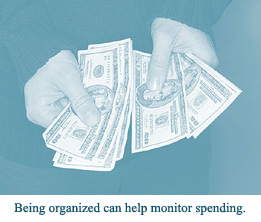Relationship/Marital Problems
Few, if any, relationships are perfect. Problems are bound to occur. The
problems most often linked with marriage and other relationships include:
 |
Failures in communicating |
 |
Misunderstandings |
 |
Negative feelings, such as being hurt, put down, ignored, abused
and/or lonely |
 |
Power struggles |
 |
Acting out to get attention. Ways to do this include pouting,
whining, nagging and complaining |
 |
Addictive behaviors |
Other problems arise when partners have different needs in a
relationship. Common differences include:
 |
Money |
 |
Sex |
 |
Work |
 |
Child-rearing |
 |
“In-law” or other family problems |
 |
Time and how it is spent (i.e., studying, partying, golfing,
watching TV) |
|
 |
Most of the time, these problems can be worked out by the persons
involved. Professional help should be sought, though, if any of the
following apply:
 |
The problems are severe |
 |
The problems keep you from doing your daily tasks |
 |
You cannot resolve the problems on your own |
 |
You want to strengthen your relationship(s) |
Questions to Ask
Have you thought about suicide or harming the other person as
a way to get out of a relationship?
|
 |
|

|
|
Are you or others you live with being physically abused?
|
 |
|

|
|
Have you been unable to perform your daily living tasks due
to any of the following?
- Depression (See “Depression”.)
- Physical or mental health conditions in yourself or
others you live with
- Inability to make any decisions
|
 |
|

|
|
Are you acting out in ways that cause physical and/or
emotional distress to others?
|
 |
|

|
|
Are you projecting your anger from one relationship onto others?
|
 |
|

|
|
Do you want to resolve a relationship problem(s), but you
have not been able to do so on your own?
|
 |
|

|
|
Do you tend to cover up or make excuses for any kind of abuse
in the marriage or relationship? This includes drug abuse, child
abuse, gambling, and violence.
|
 |
|

|
|
Do you feel as though you can’t be yourself with your mate or
do you generally feel unsatisfied being part of a couple?
|
 |
|

|
|
Do issues that center around money, work, sex, in-laws,
children, partying, etc. go unresolved and tend to simmer just
below the surface?
|
 |
|

|
|
Do the same concerns keep coming up and do you and your
partner continue to have the same fight over and over?
|
 |
|

|
|
|

|
|
Self-Help
Ways to Improve Communication
 |
Avoid blaming the other person. This puts him or her on the
defensive and prevents communication. When blaming starts, listening
stops. |
 |
Take 51% of the responsibility for listening to what is being said.
Ask questions to clear up what you don’t understand. |
 |
Be sincere, honest, and show concern in your conversation. Don’t be
sarcastic or make fun of the other person. |
 |
Try to let go. Before getting into an argument, ask yourself if the
issue can simply be “let go.” Ask the other person, too. If you both say
yes, drop it and don’t let it re-surface at a later time. |
 |
It’s alright to discuss problem issues, but be certain that you
focus on how to solve the problem, not placing blame for it. |
 |
Put yourself in the other person’s shoes. Try to see his or her
point of view. |
 |
Remind each other of the many positive strengths of the
relationship. Build on these strong points. Don’t dwell on the negative
ones. |
 |
Don’t bring up old issues, disputes or grudges. When past problems
enter in, the conversation can get out of hand. |
 |
Timing is critical. Ask yourself if it is the right time to bring up
an issue. If the other person is undergoing problems with work, school,
kids, health and/or family, adding yet another problem to their burden
is not likely to solve the issue. It may serve to cause them more
anguish. If possible, wait until the other person’s burden has lightened
to bring up yet another problem. |
 |
Don’t approach an issue with the idea of changing the other person’s
mind or convey an attitude that you’re right and he or she is wrong. |
 |
Share the issue. The problem belongs to both you and the other
person. Work to understand your partner’s position first, then to have
him or her understand your position. |
 |
Omit distractions. Don’t attempt to discuss an issue while driving a
car, taking care of children, doing a household chore or doing anything
that will take your attention away from the issue and the other person. |
 |
Make sure you know your own position and be ready to state it
clearly to the other person. |
 |
Communicate in an assertive way.
- State your position in terms of what your feelings about the
issue are.
- Don’t make demands of the other person or put them down.
- Use “I” rather than “you” messages. For example, if you are
upset by the fact that the other person has begun to neglect their
appearance, instead of saying “You look like a slob,” it would be
better to state “I like it better when your appearance is neat.”
|
 |
Listen with your heart. Hear what the other person is saying
regardless of how they say it. Allow him or her to be comfortable while
they are stating their position. Don’t take an “attack” position and
wait tensely for your turn to talk. Don’t interrupt them while they are
speaking. |
 |
Make a plan. This should consist of what you can do to solve the
issue and what you are willing to do. Knowing these things in advance
can speed the solution and reconciliation process. |
 |
Go in peace. Let the discussion of a problem run its course and end
in peace with both of you at ease. Don’t continue to “stew” over who
said what, the decisions that came out of the argument and whether the
other person gained more than you did in the bargaining session. If you
still feel uncomfortable with the solutions, re-state your position and
try again. Be aware, however, that some issues may not be able to be
changed. For example, in the case of differing sexual desires/needs,
forcing or asking that your partner engage in sexual activity beyond
their desire for it will not benefit you or your partner and will only
cause more tension. |
|

 |
Specific Problem Areas
Jealousy
 |
Focus on the idea that the relationship is more important than the
problem.
|
 |
If you experience abnormal jealousy in relation to situations or
persons in your life, the following suggestions may be helpful:
- Admit your jealousy. Pretending there is no problem or that it
is not a serious problem only compounds the issue.
- Look for the cause of the jealousy. Some of the causes may be:
- Your present or a past partner cheated on you which has
caused you to feel insecure.
- Your partner seems to pay more attention to others, work or
social friendships.
- Members of the opposite sex find your partner attractive and
pay a lot of attention to him or her.
- You fear your partner may one day lose interest in you and
seek another partner.
- Express your fears and concerns to your partner.
- Learn about jealousy. Read books on the subject, talk to people
who live with jealous persons to get an idea of what it’s like to
experience a partner’s jealous responses. Or, talk to other people
who experience extreme jealous feelings themselves.
- Communicate. Talk to your spouse/partner about your feelings.
Perhaps they are doing something they are not aware of that is
causing you distress.
- Talk to a counselor if you cannot curb your jealous responses on
your own.
|
 |
If you are the victim of someone’s abnormal jealousy or if you know
someone who is abnormally jealous, the following suggestions may help
you deal with them:
- Be supportive. Recognize that your partner has a problem and
encourage them to work on their behavior. Give them positive
feedback as they progress.
- Hold your ground. If your partner questions you, state your
explanation clearly and without anger.
- Be objective. Try to see the situation from your jealous
partner’s point of view when possible. Avoid doing things that may
be causing their jealousy and spend quality time together as a
couple. Communicate your feelings to your spouse/partner. Tell them
you love them. Compliment them.
- Don’t provoke jealousy. If you know your partner is prone to
certain jealous reactions, don’t flirt with people in their
presence, don’t ridicule, antagonize or tease your spouse/partner
about their jealousy. Don’t leave “fake clues” to an alleged
infidelity.
- Don’t isolate yourself. Do not withdraw or avoid other social
relationships. This can be the consequence of dealing with a violent
or otherwise abusive jealous person. You need to communicate and
interact with other people to maintain your own sense of self-worth
and identity.
|
 |
Seek professional help. If you and your partner cannot work out your
jealousy problems through communication, companionship and trying to
create an otherwise satisfying relationship, consult a counselor. |
Sex
Discuss your sexual needs with your partner.
 |
Ask your partner about his or her sexual needs. |
 |
Develop areas where both you and your partner have compatible
needs/desires. |
Money Matters
 |
Set financial goals. Decide together what you want to accomplish
within a certain time (example: 6 months, 5 years, throughout life).
Continue to review and modify your plans, if necessary. |
 |
Develop a realistic budget. You can do this in one of two ways:
- Single Fund - Both partners have a joint account and agree that
“what’s mine is yours.” This works if both of you can agree on a budget and
spending practices.
- Separate Finances - This works well if both partners work. Each
person is responsible for an agreed-on portion of the household costs. They
are then free to do whatever they wish with the rest of their money with
no resentments from the other partner.
|
 |
Organize financial records. Keep track of statements, check stubs
and receipts. These can help monitor spending. |
 |
Establish a credit history in both partners’ names. |
 |
Limit the number of credit cards you have, how much you charge on
them or get rid of them entirely. Opt for credit cards with the lowest
interest rates, if you use them. |
 |
Get professional help from an accountant, financial planner or other
specialist if you need help managing your money. |
|
 |
|














